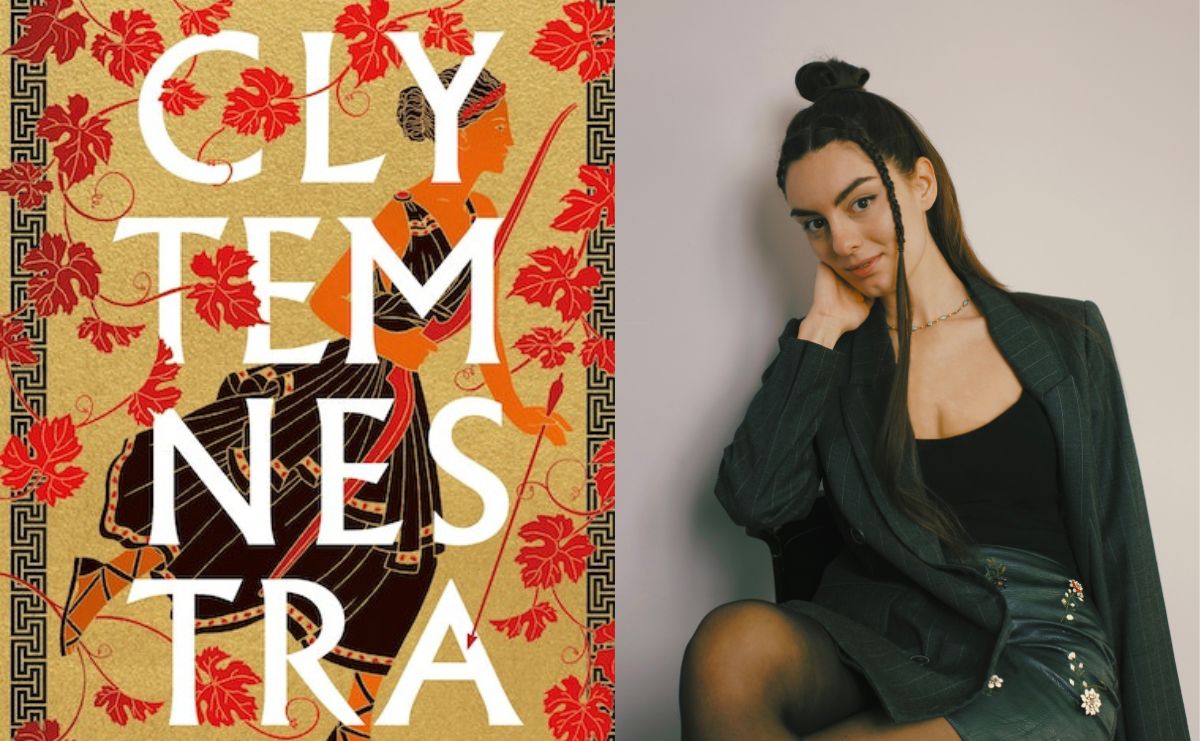Greek mythology depicts Clytemnestra as vengeful, cold and heartless. She is – somewhat patriarchally – remembered as the worst of evils, an adulteress who murdered her husband. Gender often mediates perception, resulting in the hypocrisy of casting out women for engaging in the same acts as so-called heroes. Constanza Casati paints a subversive portrait of this mythologically-maligned Spartan in her brilliant debut novel, Clytemnestra.
The story begins in Clytemnestra’s 16th year. Clytemnestra knows – through the strength of her grandmother’s words – that she was born to rule. She isn’t as beautiful as her sister Helen (yes, that Helen) but she is clever, enduring and deeply protective – a natural leader. Her own pain she can handle, but it is the pain inflicted upon her family that hurts Clytemnestra. Throughout the tale, Clytemnestra’s most cherished joys are repeatedly juxtaposed against heart-shattering tragedy.
Greek mythology is notoriously rife with murder, rape and revenge, and this retelling fits the bill. However, this feminist interpretation privileges Clytemnestra’s perspective. She is a strong Spartan figure at the heart (and periphery) of so many myths, adjusting to an existence in which women are chattels with little to no agency. The children she clings to and the violence she rebels against symbolically comment on themes of toxic masculinity, kindness blindly perceived as weakness, and the act of upholding tradition to the detriment of all. Brave, protector, warrior – these are words that may have described the mythological Clytemnestra had she been a man. This is the version Casati portrays.
The reader is drawn into a rich Spartan culture through Clytemnestra’s engaging perspective. The dimensions of her existence are alive with deep shades of mythology, politics and subtly brilliant foreshadowing. The author brings a large cast of interestingly named characters to life, including loveable Castor, gentle Helen, many-minded Odysseus, unique Aegisthus, ominous Agamemnon and menacing Menelaus. Mother/daughter dynamics bookend the overall narrative, as invisibly omnipresent as they often are in life. Sibling relationships dominate the narrative far more than any of the romantic liaisons. This is a surprising yet somehow perfect choice in a story defined by recurring themes of romance, rape and marriage.
A basic understanding of Greek mythology will render the reader more sensitive to the author’s clever nuance, in addition to raising the dramatic tension in almost every chapter. The early appearance of Agamemnon will make knowledgeable readers grit their teeth in grim suspense, and knowing the fate of Tantalus in advance doesn’t make the infamous act any less despicable. Readers with no prior knowledge of mythology are in for a shocking, but addictive, literary ride.
Clytemnestra poses myriad questions concerning power and strength. These questions include the obvious (such as, why is Clytemnestra depicted as a villain for killing a murderer?) and the subtle (which things can’t be taken by force? What happens when people are blinded by power? Why are kings revered and queens despised?). It highlights the audacity of entitled men (Menelaus expecting Helen’s hand, Agamemnon expecting literally everything) and rolls its eyes at heroes who think the whole world owes them. The author doesn’t shrink from the violence of men as she sings women’s unsung songs.
With so much to focus on, this is a story that could have potentially been tens of thousands of pages long. And while the book is impressively dense, it is beautifully paced and written with careful precision. There is so much here that resonates, even for those as far displaced from the ancient world as we are. These aspects include – but are certainly not limited to – raw grief, truest sorrow, flawed traditions, objectified women and the dangers of weak men who assert their supposed strength by subjugating those who are infinitely stronger.
Read: Theatre review: Fences, STC Wharf 1 Theatre
Casati’s stunning work of historiography is visually evocative with visceral language, beautifully capturing an often brutal world. This epic tale will resonate with women who know what it is to be despised and hated, and those who relentlessly strive towards freedom.
Clytemnestra by Constanza Casati
Publisher: Penguin
ISBN: 9780241554777
Format: Trade paperback
Pages: 480 pp
Release Date: 04 April 2023
RRP: $32.99






